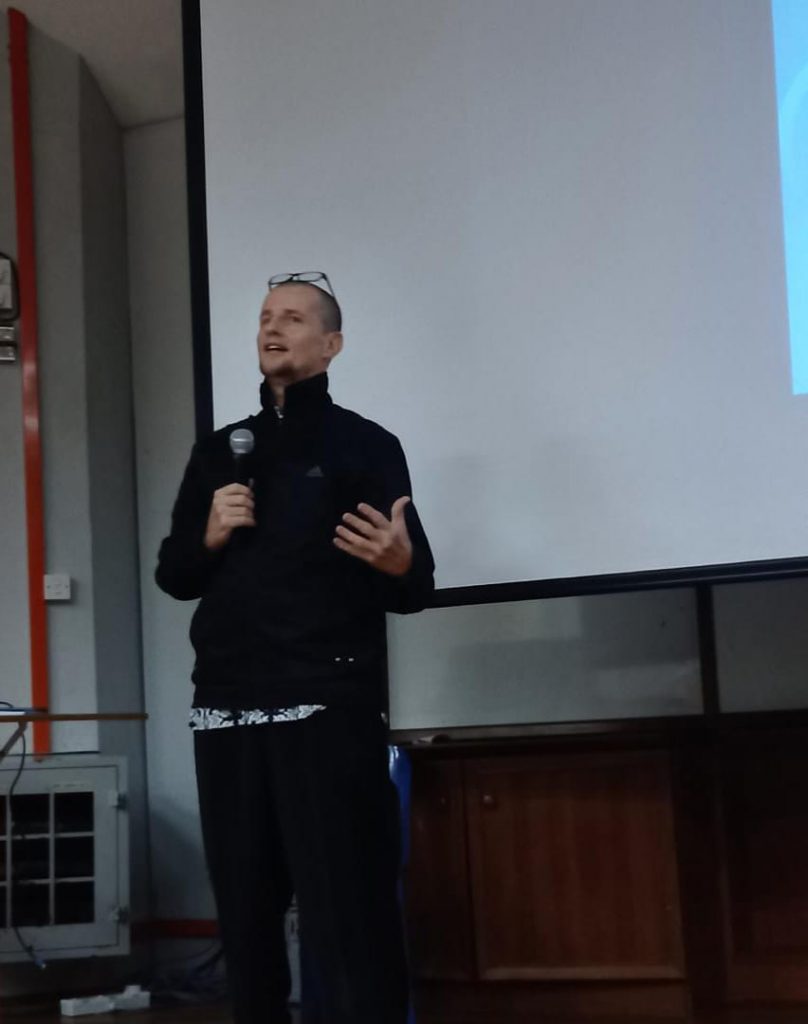By Sabrun Jamil and Syafiah Sakirin
GOMBAK, 28 December 2022: The annual History Research Seminar 2022 was conducted on 22 December by IIUMs Department of History and Civilisation in collaboration with HISTFORIUM as part of the Scholarship Advancement Programme (SAP) offered by the university.
According to the Head of the Department of History and Civilisation, Dr. Mohd Helmi Mohd Sobri, this is the third annual seminar conducted by the department, with the last one being in 2020 before it was halted in 2021 due to the pandemic.
In a welcoming remark by the representative of Kulliyah of Abdulhamid Abusulayman Kulliyyah of Islamic Revealed Knowledge and Human Sciences (AHAS KIRKHS), Dr. Ainul Azmin Bt Mohd Zamin underlined that the aim of the seminar is to expose the students as the participants to the researchers latest studies.
œIt is to share as much information as well as encourage them to contribute to future research activities for the department and ummah in general, she highlighted.

Several topics were covered during the seminar, but the subject of both Malay and Islamic civilisations were the ones accentuated the most by the researchers who took part in the talk.
Dr. Mohd Helmi presented his research study on the social and societal development of the Malay community with his topic of Orang ramai becoming masyarakat: the Historical Genesis of the Malay Sense of Society and the Social in Early Twentieth Century Malaya.

He emphasised on the concept of orang ramai, which back then held the meaning of perhimpunan or assembly, where people would share their views, thoughts, and opinions about issues on a platform like magazines or news. This indirectly became the spearhead for the social development of the Malays.
œWhat is essential here is the communication and interactions that they would have would be known as the platform for this abstract orang ramai to be able to operate as a meaningful force, he said.
He added that early iterations of the term orang ramai would mean, œthose people involved in these interactions would be seen as equals.
On the other end, Dr. Mohamad Hazizie bin Sulkafle presented his research study on the judicial aspect of Malay civilisation. His topic was, A Universal Idea of Justice: The Spread of the ‘Circle of Justice’ In the Malay World.
His research study was on the ‘Circle of Justice’, which is a political aphorism that explains the relationship that exists between the people and the state.
œThis aphorism has been around ever since the Ottoman Empire, but can be tracked back all the way to the Mesapotamian Era, during the time of the Hammurabi, he remarked.
Dr. Mohamad Hazizie mentioned that he noticed a big research gap when it came to the concept in the Malay world, stating that he only found one utterance of the concept by Dr. Azhar Ibrahim beforehand.
When doing his research, he managed to find the concept of the ‘Circle of Justice’ in several historical literature and legal texts. This signifies the intellectual development regarding the idea and concept of justice in the Malay world. This also proves that scholars in the Malay world are aware of intellectual developments in the central Muslim land.
One of the presenters for Misconception about Islamic Architecture: The Role of Richard Francis Burton, Assoc. Prof. Dr. Spahic Omer mentioned exploring this civilization would suffice the focus on architecture where Islamic architecture is the mirror of civilization.
“Richard Francis Burton emphasised so much on the concept and phenomena of Islamic art and architecture as the meeting point of east and west in regard to something else, he said.

In his presentation, he insisted how Islamic architecture is not categorized as either architecture of science or science art is the source of misconception. It is a disaster if people only study Islamic architecture solely from the perspective of western art and architecture.
Dr. Alwi Al-Atas presented, The Ottoman Consuls in Batavia, 1882-1924 whereby he explained how the consulate was established in Singapore, Batavia, Turkey, and Jeddah which involved the conflict between the British, particularly the Dutch, and the Hadrami consulate.
œThe British itself was actually reluctant with the opening of the consulate, especially the Dutch because the consulate became the place and centre for the Hadrami community whose ideas were closely related to pan-Islamism when it was established in Singapore, he said in his presentation.
He elucidated how even the Dutch expressed their concern and criticism of the colonial government to the consulate opening, as the local Hadrami used the consulate to attack the Dutch government several times in the mass media.
œThis is why the opening of the consulate became a serious concern for the Dutch. However, despite the Dutchs attempts to stop the consulate establishment, they eventually have to accept the opening in Batavia in fear of retaliation from the Ottoman, He added.
Among the other presenters were Dr. Olsi Jazexhiu with the title Hybrid Warfare: How the United States and Israel are Using the Mojaheden E-Halk in Their War Against Iran from the Balkians and Assoc. Dr. Fauziah Fathil presented on Islam in Japan through the Lens of Muslim Scholar, Umar Mita.
The seminar ended with a question and answer session as well as a photography session.***
